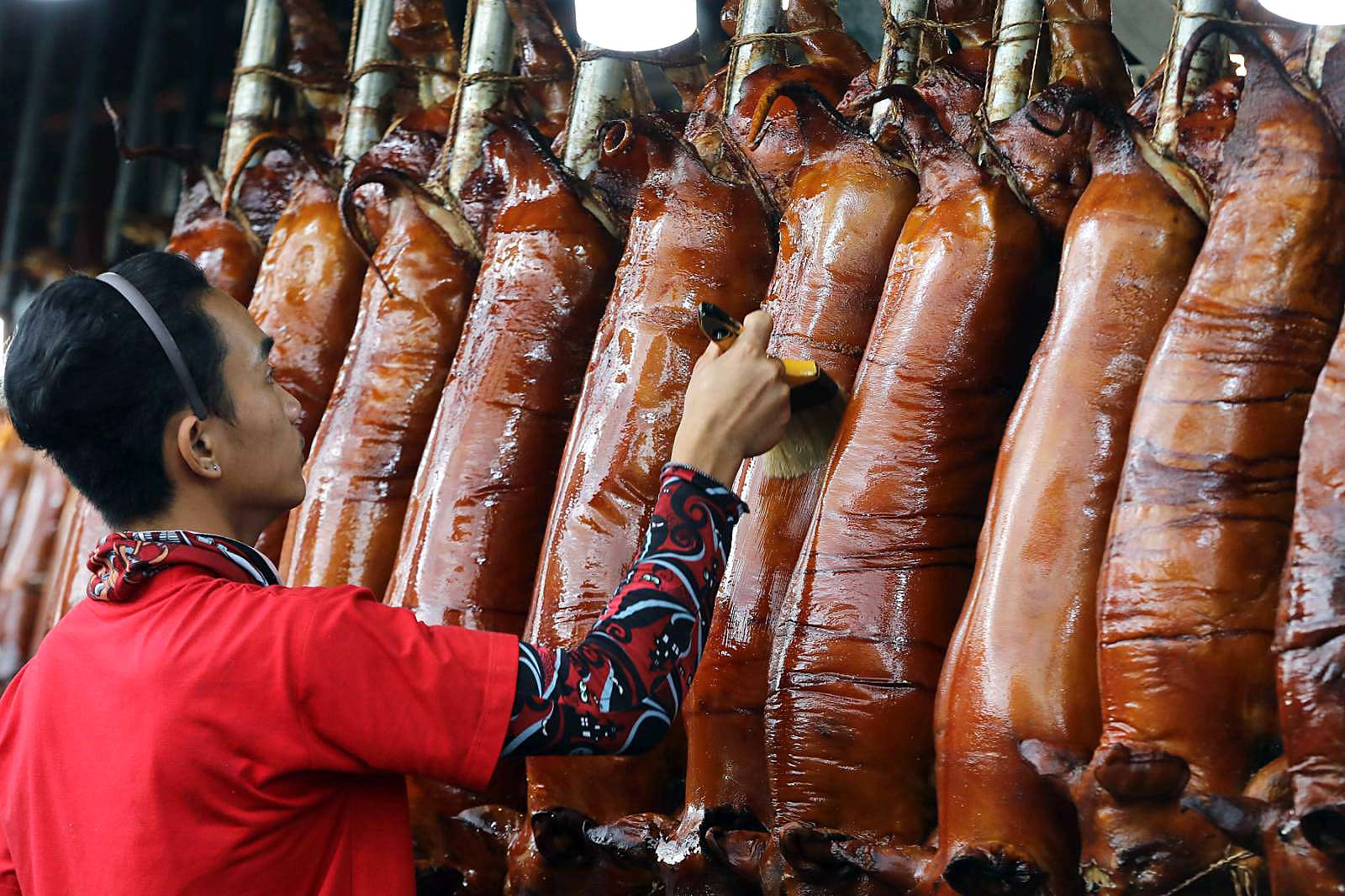
By Stephanie Sevillano | Philippine News Agency
Agriculture Secretary Francisco Tiu Laurel Jr. said there is no need to put a price cap on pork, particularly on lechon (roasted) pig, for the upcoming holiday season despite the effects of African swine fever (ASF) in the country.
“No, I don’t believe in price caps. Lalo na [sa] lechon. Technically, it’s a luxury item,” he said in an ambush interview on the sidelines of the annual membership meeting of the Philippine Chamber of Agriculture and Food, Inc. on Thursday.
Tiu Laurel said that although a “minimal” price increase is expected amid the peak demands during Christmas, the country has a “stable” pork supply.
“I don’t think [there’s] going to be a big increase (in prices). I think increment[al], minor increase lang,” he added.
National Federation of Hog Farmers chairperson Chester Tan likewise allayed concerns over the holiday staple’s supply stability.
“Right now, we are assuring na sa ating publiko na this coming season ng December that we have enough supply of pork even for the lechoneros, mayroon tayong enough supply,” he said in a separate interview.
He said they have secured forecasts, planning, and preparation with the DA for the past two to three months.
The D.A. chief, meanwhile, said that the arrival of pork imports has helped strengthen the country’s stocks.
“I think we have enough supply. Actually, I was looking at the import numbers the other day, and lumalabas there is 10 percent more importation of pork this year than last year,” Tiu Laurel said.
As of Sept. 30, more than 517.86 million kilograms of imported pork arrived in the country since January, based on the D.A.’s Trade System.
The D.A. has also been ramping up efforts to mitigate the impact of ASF in the livestock sector through continuous government-controlled vaccination and more stringent biosecurity protocols, including setting up inspection stations within Metro Manila and nearby provinces.
To date, 465 barangays in the Cordillera Region, Ilocos, CALABARZON, MIMAROPA, Bicol, and SOCCSKSARGEN are still under red zones (areas with active cases of ASF), according to the Bureau of Animal Industry.
